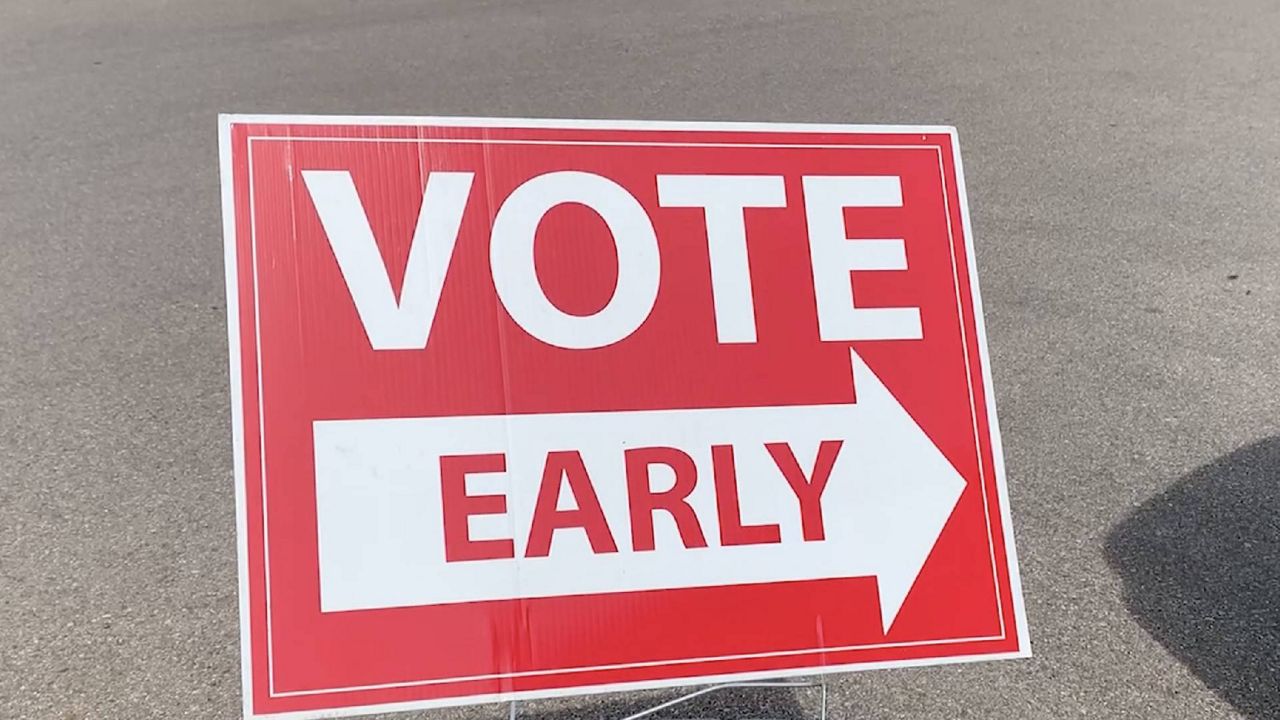The first weekend of early voting concluded on Sunday as voters are being increasingly bombarded with entreaties from both Democratic Gov. Kathy Hochul and Republican Rep. Lee Zeldin that seek to drive out the base of their respective parties.
For Hochul, the push has focused on abortion rights, stricter gun laws and tying Zeldin to his support for and from former President Donald Trump. For Zeldin, the focus has been almost uniformly on public safety and crime concerns.
Both messages are not necessarily appealing to voters in the middle or those not registered in a party. Instead, both Hochul and Zeldin are trying to mobilize party faithful as polling has shown the race tightening in recent weeks.
New York remains a deeply Democratic state. But its very diversity -- large rural expanses, suburban communities and major urban areas -- makes the state a microcosm for the very forces at play in national politics.
Several years of social upheaval from the COVID pandemic have coincided with fierce debates over policing, public schools and transgender rights.
Crime is a local issue, right down to a person's neighborhood. But it's also a national trend that has been highlighted across the country.
On Saturday as Hochul campaigned in Buffalo and Rochester, former President Barack Obama, who recorded a radio ad for her.
"Kathy is strengthening the economy, investing in public safety, and getting illegal guns off the streets," Obama says in the spot. "And you can count on her to protect abortion rights, voting rights, and everything else you care about."
Zeldin's campaign, meanwhile, rallied with Florida Gov. Ron DeSantis on Long Island. In his remarks, DeSantis pointed to the influx of people from Democratic-led states like New York and Illinois to Florida.
"I'll have people come up to me and say, 'Thank God for Florida.' I just couldn't take it anymore," DeSantis said.
The cameo appearances from Obama and DeSantis are not necessarily a surprise. But those messages are not targeted to undecided voters or New Yorkers in the middle. As the cliche goes, it's about turnout.
Zeldin has sought to cast the campaign as a way of saving New York after 15 years of Democrats holding the governor's office.
"We have an opportunity to turn this around," Zeldin said this weekend. "But right now we have a person in the governor's office who doesn't even understand why we're leading the nation in population loss."
Hochul, who was elevated to the post last year following the resignation of Andrew Cuomo, has portrayed herself as a steady hand during a turbulent era who is far different from her predecessor.
"We're rebuilding -- rebuilding everywhere from East Buffalo to the far reaches of Buffalo," she said after voting this weekend in Buffalo. "We're working together, because that's what we do."
But Zeldin and Hochul alike have been campaigning, in some regard, as if they are running to lead to very different states.
In one state, voters are concerned about abortion rights under Republican leadership in the governor's mansion and support new gun laws in the wake of a mass shooting in Buffalo and after the U.S. Supreme Court found a century-old concealed carry law is unconstitutional.
In another state, crime has created an untenable situation, and criminal justice law changes like ending cash bail are to blame. Residents of the state believe that allowing fracking to drill for gas in the Southern Tier will help the upstate economy.
Polling has shown independent voters, whose ranks continue to swell and outnumber Republicans and grow faster than Democrats, will likely play the decisive role in this race. Not all are necessarily moderates, but their lack of party identification makes them unknown variables.
Will they fully break for Zeldin and deliver a political earthquake? Or will these voters help make Hochul the first woman elected to the governor's office in New York history?



